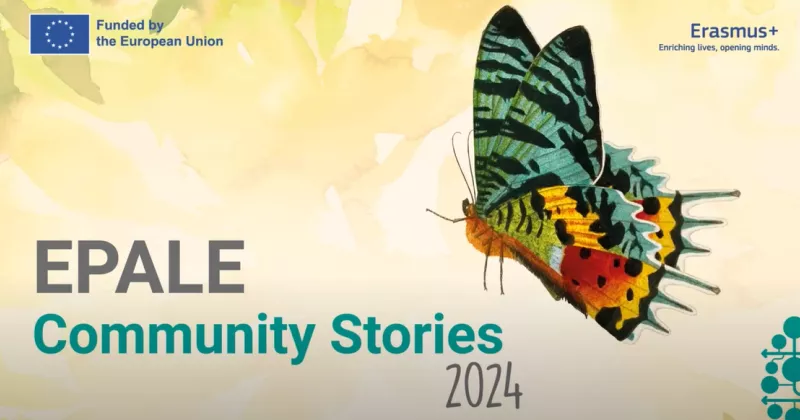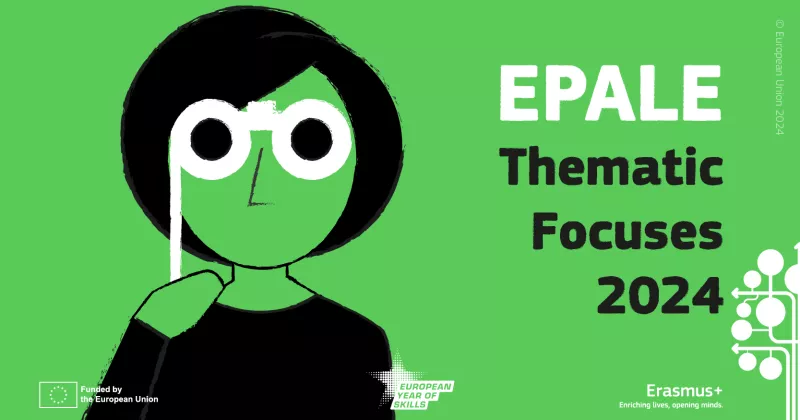Learning and basic education in the working world: approaches from Austria

A wide concept
The concept of working world-based learning comprises all types of action-based or reflective learning in the context of vocational occupation or training. Thus, this not only includes learning at companies, but also learning in vocational training (internships, apprenticeship) or learning of unemployed persons with regards to the job. Learners and companies alike are to benefit from these offers.
Working world-based learning in Austria
The national programmes for this are very different. In most countries, working world-based learning takes place directly at the workplace and is very much focussing on the needs and interests of the employer, sometimes also financed by them or held during working hours.
In some countries like Austria, working world-based learning has a long tradition within the scope of the dual vocational training (apprenticeship). Within the scope of the universities of applied sciences, too, working world-based education is increasing in Austria. Furthermore, there are around 950 training companies in Austria at the moment, which must be compulsorily attended for different trainings at ISCED level 3 and ISCED level 5. According to Statistik Austria (2012), Austria traditionally is among the European countries with the companies most active in continuing education, and according to the study “Continuing education 2015", the budgets for continuing education will remain constant.
The responsibilities for working world-based learning in Austria are distributed across several ministries. The Federal Ministry of Science, Research and Economy supports continuing education on-the-job. The Federal Ministry of Labour, Social Affairs and Consumer Protection supports the educational offers for unemployed persons via the labour market service – among other things, with promotional models like part-time maternity leave or qualification support. And the Federal Ministry of Education and Women supports vocational schools (dual training) and working world-based adult education in the form of various projects.
The workplace as a place of learning for basic education
Less than 1 % of the people with low basic skills participate in courses for reading, writing, numeracy or ICT. Attending a course is frequently hampered by financial, vocational, social and temporal barriers, and also the need is quite often not admitted. However, it is also known that a high percentage of those with low qualifications are in employment. If they can be reached with learning offers on-the-job, then many of these barriers no longer apply, and the first essential step – the initial hurdle, so to speak – is being taken for the learners. In this respect, the workplace can be an ideal place of learning, especially for basic education.
In terms of contents, basic education on-the-job also comprises spoken and written language, arithmetics and problem solving strategies. These skills must be used contextualised at work, often in combination. For example, reading, writing and arithmetics must be combined when listening to a team leader, who communicates modifications of an order. But also when instructions are read, which contain text and figures. Or when it comes to processing weights, numbers or temperatures, which a colleague informs about.
Therefore, it is particularly important for work-related learning offers, to convey skills in an integrated fashion and to learn with real – authentic – materials and tasks. Diligence and time are required for that, even if other priorities at the workplace threaten formalised learning. Providing working time for that on the part of the companies has proven to be a success factor.
Practical pilot projects for working world-based basic education in Austria
In Austria, there are a number of practical projects in this area, often in the form of pilot schemes. Such projects are frequently not comprehensive, general-education offers. Nevertheless, learning is taking place here, which is very helpful for the workplace-related needs of the learners.
- Until 2014, abz*Austria offered the project KeCK, a free and customised qualification programme for companies and educationally disadvantaged working women.
- Spar Akademie cooperated with the Vienna-Meidling Adult Education Centre with the aim of lifting apprentices with problems in German to compulsory school level.
- Union education guides act as a bridge between the works councils and the education landscape and try to reach learners with a need for basic education in particular.
- Workplace-related basic education is also offered for transit workers in non-profit employment projects, as, e.g., by BHW Lower Austria for more than 7 years.
- Specific training for adult learning teachers in working world-based basic education is currently being developed and will soon also be held by bfi Upper Austria.
Transnational cooperations are pointing the way
Due to its particularities, basic education on-the-job also needs guidance like competence framework, implementation manuals or good-practice collections to achieve national implementation. Several such tools have been created in transnational cooperations over the past years and were completed in 2015:
- In the project lit.voc (literacy and vocation – basic education and occupation), the bfi Upper Austria, together with Zukunftsbau GmbH Berlin and four other partners, defined competence levels for vocationally oriented literacy of adults. The project partners also developed an instrument for performance evaluation (E-assessment), using which literacy/numeracy/media skills in vocational training programmes can be tested.
- With the transfer project Literacy@work (basic education on-the-job), field-tested guidelines for workplace-related basic education from New Zealand were transferred to Europe – concretely to France, Germany and Austria.
- In the project “A&O – Workplace-oriented basic education for low-skilled workers”, Interkulturelles Zentrum (IZ) in Vienna, together with partners from Luxembourg, Switzerland and Germany, developed, among other things, a manual for the implementation at companies and a project film with good-practice examples.
Learning on-the-job is also the main topic of the new ET2020 work group on adult education, which will start working in Brussels in February 2016.
Further information:
- European toolkit for working world-based learning
- Project overview “Successful for alphabetisation”
- Work-based learning in CVET (Cedefop research paper 49/2015)
Image: CC by cogdogblog (flickr.com)





